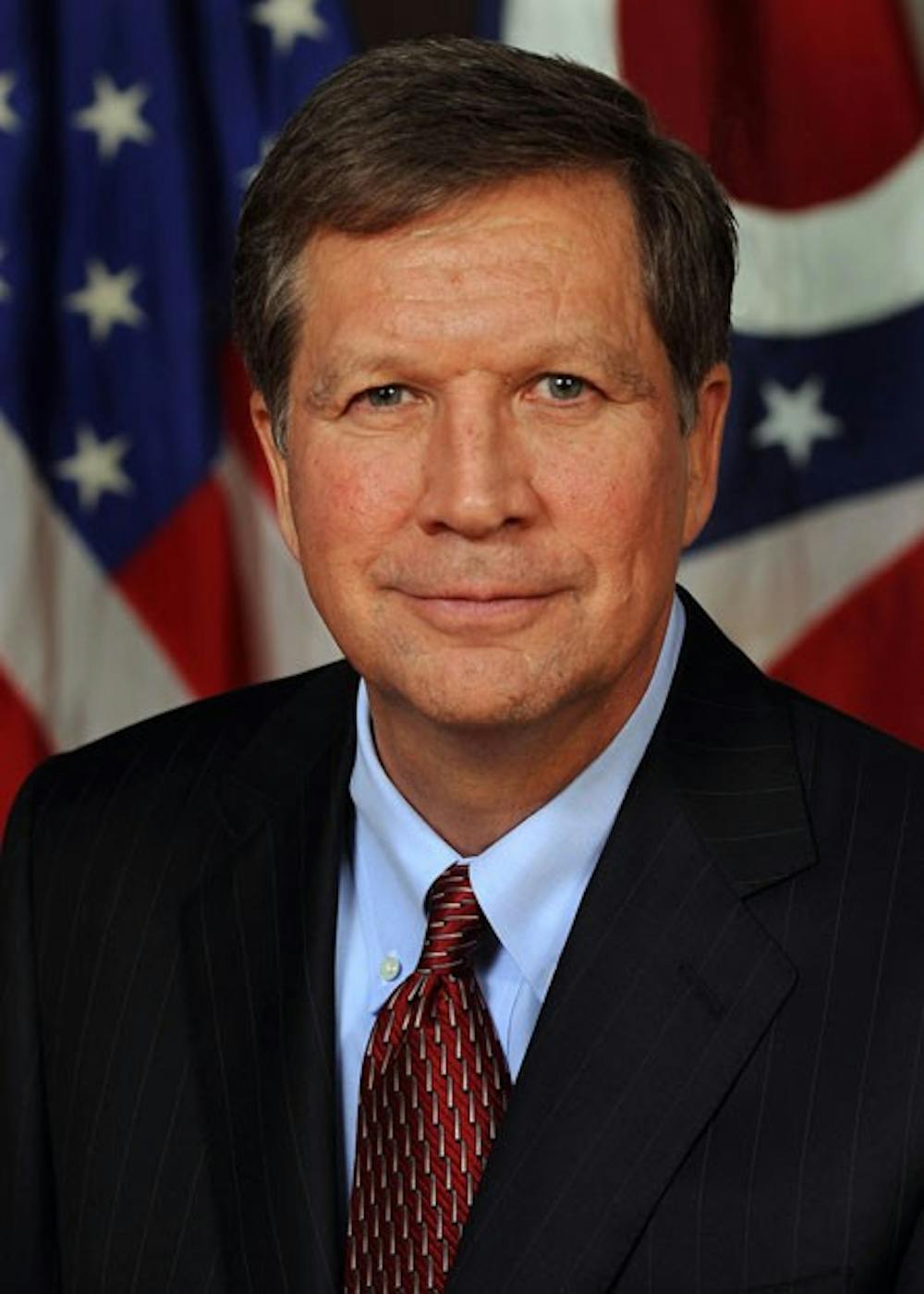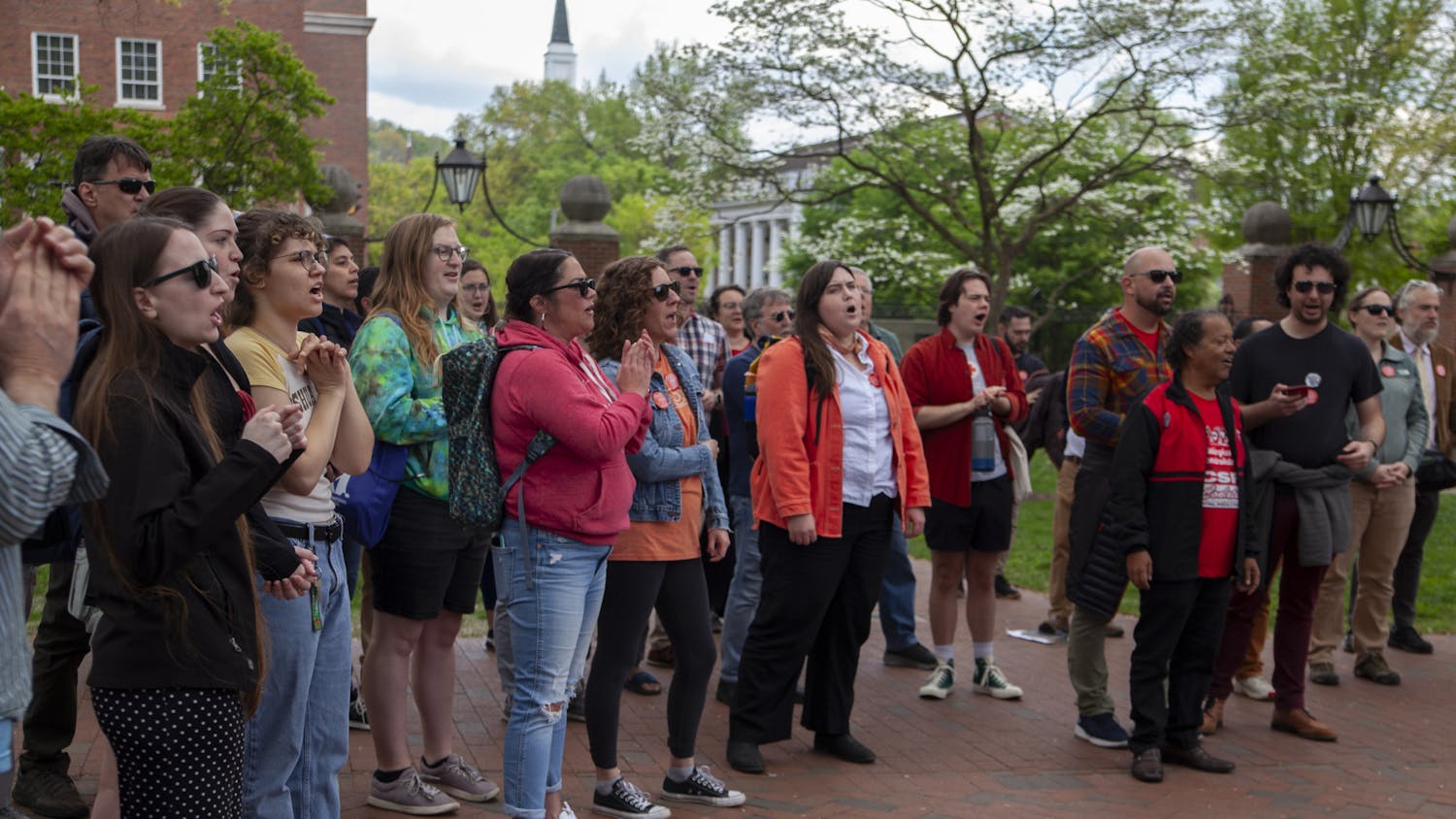The governor encouraged residents and legislators alike to continue on the economic path the state has been on
Ohio Governor John Kasich encouraged Ohioans and members of the state legislature Tuesday to continue a trend of economic growth, which he said was a result of “acting like a good-old Ohio family” and implementing conservative economics.
“We haven’t finished our mission,” he said during the address. “We have a lot more battles to wage, and I cannot wage them without you.”
He started his annual State of the State address, which took place in Wilmington, by highlighting some of the key economic improvements that have taken place since his 2011 inauguration.
Since that time, he said, the state’s economy has seen a change from a $8 billion deficit to a $1.5 billion surplus.
He also said that economic reform should not be an end unto itself, but that a strong economy should be used to encourage improvements in services such as welfare, education and law enforcement.
“It all starts with a strong economy,” he said. “If we’re not creating jobs, ladies and gentlemen, all the other things aren’t going to happen”
Education
Kasich touted education reform as a way to further encourage growth in the state, and commended university presidents for working so closely with him on a strategy.
He brought attention to the nine-member task force he implemented earlier this month in order to evaluate some of the main sources in university spending in an attempt to reduce tuition costs.
He also encouraged a cap and freeze on tuition rates at state universities in order to make it easier for students to finish college.
He said that likely wouldn’t have a huge effect on an individual’s student debt, but that it would “signal that we know how tough it is.”
He also encouraged alternative forms of higher education, such as vocational, technical education and online courses, and supported the idea of allowing bachelor degrees at two-year universities.
Tax reform
Before discussing education reforms, Kasich spent the first part of his speech supporting the tax changes in his 2016-17 budget proposal, which was released earlier this month.
He said in order to continue the state’s trend of economic growth, the government needed to restrain its spending and put more money in the hands of Ohioans.
“When they’ve got the money, they’re going to do a better job at exercising choice than any government ever could,” he said.
He said the best way to do that would be by reducing income taxes — which he said punishes entrepreneurs and investment — in exchange for a higher sales tax.
Kasich’s budget proposal suggested a 23 percent reduction in income taxes and an increase in sales tax to 6.25 percent.
The proposal also includes a complete reduction of income taxes for businesses making less than $500 million in annual returns.
Kasich promoted that strategy as a way to encourage business growth in the state and prevent young people from moving away to pursue careers in other states.
“We’ve got cool cities; we’ve got low cost of living. You’ve just got to give them jobs so they don’t have to go somewhere else to get excited about their lives,” he said.
He ended the speech by pointing to his gold tie, which he said he always wears when he comes to Wilmington as a symbol of how the town was able to pull itself out of the recession.
“The sun is coming in Ohio, but it hasn’t reached its zenith,” he said. “It’s not in the shining bright blue cloudless sky for all to see — but we can push it there.”
Reaction
State Rep. Debbie Phillips, D-Albany, sent out a news release Wednesday saying Kasich’s policies had failed to pull Ohio out of economic recession, and that there was still work to be done.
“I hope we can change this budget so it works for Ohio,” she said in the release. “And I hope we can get Governor Kasich to pay attention to what Ohio really needs, rather than his own political ambition.”
Phillips said Ohio is still 80,000 jobs shy of pre-recession levels, making it one of 15 states to have not recovered all of its jobs after the 2008 recession.
She criticized Kasich’s tax policy as well, and said it would result in a $1.5 million increase in tax levels on goods and services.
That would disproportionately impact low-wage earners while reducing taxes by nearly $12,000 a year for the top-wage earners, she said in the news release.
Kasich’s budget would also increase funding for charter schools at the expense of local school districts, according to the release.
Phillips also said the governor was not doing enough to support local governments or universities.
According to the news release, Ohio families put 20 percent of their total income toward their child's four-year education at a public university, which is 40 percent higher than the national average.
@wtperkins
wp198712@ohio.edu






